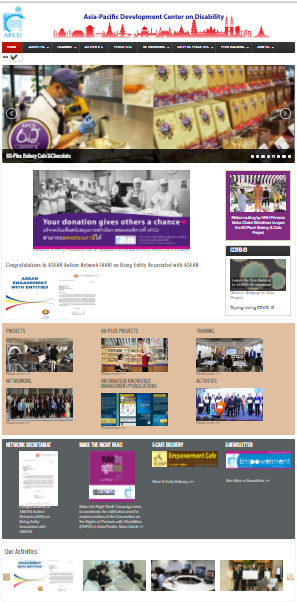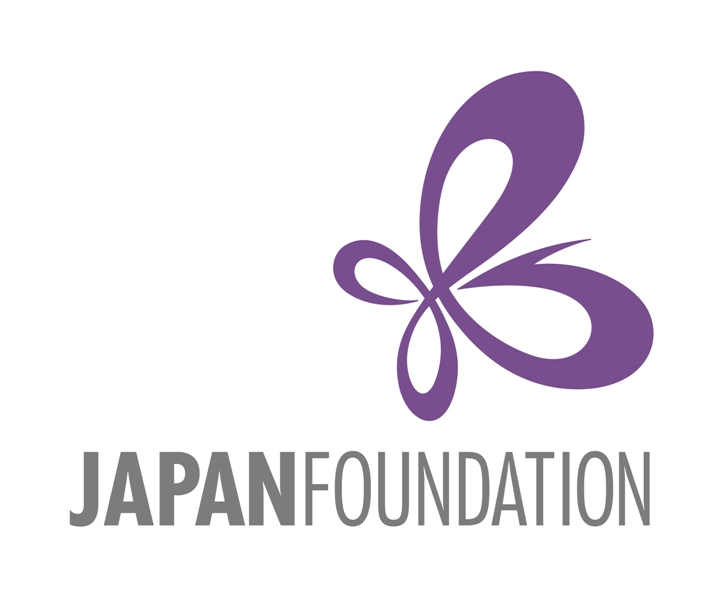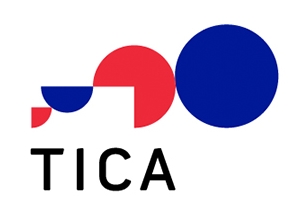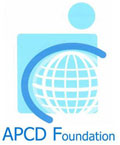Training on Disability, Gender and Development
Creating a Society with a Fulfilling and Self-reliant Life for Women with Disabilities
Training on Disability, Gender and Development 8-20 March 2010 in Bangkok, Thailand
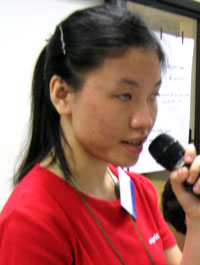 VIETNAM
VIETNAM
The transportation system is still inaccessible for blind persons. Women,especially just a girl like me, are not selfconfident enough to go out on their own. We need someone to accompany with us. It makes us become dependent on other people.
Women with disabilities normally have difficulties in marriage as we have fewer chances than men. I usually strive in study to manage an independent life in the future and participate in social activities.
This training let me understand an inclusive society, the relationship between disability and development, and gender and development. I would like to share what I learned from other SHO’s and SHG’s activities to develop our organization further.
Dao Thu Huong (Ms.)
Member, Hanoi Blind Association
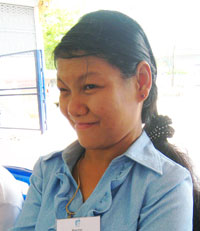 MYANMAR
MYANMAR
From this training, I gained a lot of useful experiences about gender, disability and development: the meaning of Disability Awareness Training (DAT) and Disability Equality Training (DET) with various experiences from different countries, the relationship between disability and development, the characteristic of effective and sustainable movement on accessibility, education and employment.
It was positive for me to know how to promote SHGs/ SHOs. Information about ASEAN with basic principles, the Charter, pillars, and structures were also important. By playing a leading role, I learned how to set up and manage the goals. Through the training, we got the hang of how to advocate gender equality in our decisionmaking body. With many ideas to promote gender equality, we can empower women with disabilities
Nandar New Oo (Ms.)
EC member and trainer of Computing Class and English Language Class
Myanmar Physically Handicapped Association
INDONESIA
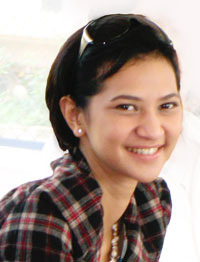 I have a lot of challenges and also barriers to deal with. According to my understanding as a person with a disability, we have to fight to get our equal rights and opportunities in our society. There is some kind of stigma that women with
I have a lot of challenges and also barriers to deal with. According to my understanding as a person with a disability, we have to fight to get our equal rights and opportunities in our society. There is some kind of stigma that women with
disabilities cannot do anything. I am trying to prove that that kind of prejudice is wrong.
Barriers can be removed with actions. I have challenged myself to achieve the best in many fields such as: academic(I am still doing my master program), employment (I am working at an international ICT company right now) and social life (I can mingle with my colleagues, friends, and other people very well).
Together with the organization that I belong to, I can face the reality. If we have good records, people in society will support our organization. We believe that women with disabilities can live our life independently as persons without disabilities.
Angkie Yudistia (Ms.)
Demand Program
Sehjira Deaf Organization
The topic of Community-based Rehabilitation (CBR) was also discussed as one of the most effective approaches which can lead to poverty alleviation of women with disabilities and their family members. By addressing many different issues at the international level, training participants expressed their commitment to any kind of positive partnership to promote equal rights of women with disabilities.

